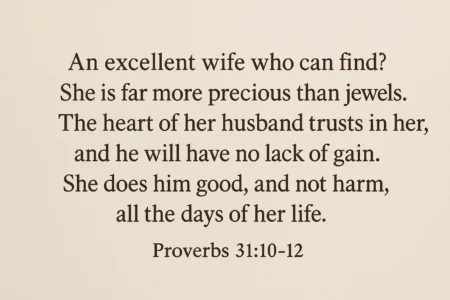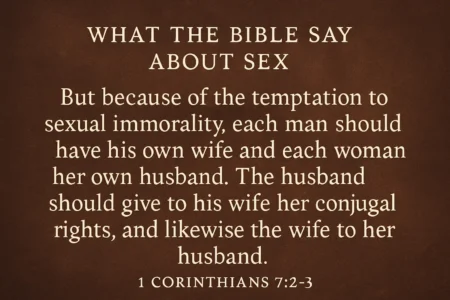Trying to answer the question, is polygamy a sin bible , feels like trying to solve a puzzle with half the pieces missing. It’s a topic that honestly trips up a lot of Christians. I know it did for me. I’ll never forget the night I was sitting in my armchair, reading through 1 Kings, when my jaw hit the floor.
Solomon had 700 wives? And 300 concubines? I glanced over at my wife, reading her own book, perfectly content. The two images just didn’t compute. How could these giants of the faith—King David, a “man after God’s own heart,” and his son Solomon, the wisest man alive—live in a way that seemed so completely alien to the biblical marriage I had been taught?
That single moment kicked off a personal deep dive. It wasn’t just curiosity. It was about getting to the bottom of who God is and how His Word holds together. If the Bible is our roadmap, we can’t just skip over the confusing parts or the roads that look rough. This isn’t about pointing fingers at historical figures. Not at all. It’s about getting a clear picture. To really understand God’s heart for marriage, we have to look at the whole story, from the very beginning in Eden all the way to the early church. This article is what I found, and I hope it helps you make sense of it, too.
More in Sexuality & Marriage Category
How Should a Wife Treat her Husband According to the Bible
How to Get Married According to the Bible
Key Takeaways
- The Old Testament doesn’t hide the fact that major figures like Abraham, Jacob, and David practiced polygamy. However, it consistently shows these arrangements leading to disaster, jealousy, and family-wide conflict.
- Instead of forbidding polygamy outright, the Law of Moses regulated it (Deuteronomy 21:15-17). These laws seem to be a way to protect vulnerable women and children within a cultural practice that was already happening.
- Genesis gives us the blueprint for God’s ideal: one man and one woman coming together to form a single “one flesh” unit. That’s a monogamous marriage.
- When Jesus is asked about marriage, He points right back to the Genesis standard (Matthew 19:4-6), saying that was the design “from the beginning.”
- The New Testament makes monogamy a clear requirement for anyone in church leadership (1 Timothy 3:2 and Titus 1:6), setting it as the standard for all believers to aim for.
Why Does the Old Testament Have So Many Polygamous Patriarchs?
It’s a real head-scratcher. You start reading the Bible, and you see these heroes of the faith—Abraham, Jacob, David—and they all have multiple wives. It feels like a massive contradiction to everything we’ve been taught. Did God just look the other way?
Here’s a critical point we have to get straight: the Bible describes a lot of things it doesn’t prescribe. It’s a brutally honest book. It shows the messy, complicated, and sinful choices of its characters without cleaning them up. Think of the Old Testament stories of polygamy less as an endorsement and more as a series of cautionary tales. They show us the chaos that follows when we deviate from God’s plan. God still worked through these deeply flawed men, but it was in spite of their choices, not because of them.
Was Abraham’s Relationship with Hagar an Endorsement of a Second Wife?
Let’s look at Abraham. God promised him a son, the heir to a massive covenant. But the years dragged on, and his wife, Sarah, couldn’t conceive. So, doubt set in. It was Sarah’s idea, not God’s, for Abraham to have a child with her Egyptian servant, Hagar (Genesis 16:1-2). This was just how things were done back then—a human workaround for what felt like a divine delay.
And the result?
Instant chaos. The Bible tells us that as soon as Hagar was pregnant, she started looking down on Sarah (Genesis 16:4). This sparked a fire of bitterness and cruelty that ended with a pregnant Hagar fleeing for her life into the desert. Years later, after Sarah did have Isaac, the rivalry between the two sons and their mothers got so bad that Hagar and Ishmael were sent away permanently (Genesis 21). This is not a happy story. It’s a raw and painful look at the strife polygamy injects into a home. It’s the opposite of a divine blessing.
What About the Tumultuous Story of Jacob, Leah, and Rachel?
Jacob’s family life was an even bigger mess. He fell head over heels for Rachel and worked seven years to earn her hand. But his father-in-law, Laban, pulled a bait-and-switch, tricking him into marrying her older sister, Leah, instead. To get Rachel, he had to work another seven years, leaving him married to two sisters—something the Law of Moses would later forbid (Leviticus 18:18).
The chapters that follow (Genesis 29-30) read like a reality TV show. It’s a non-stop drama of jealousy and competition. The unloved Leah tries to win Jacob’s affection by having sons. The beautiful but barren Rachel is consumed with envy. Their rivalry gets so toxic that they bring their maidservants into the fray, using them as surrogates to one-up each other in a baby-making contest. Their home was a pit of manipulation and heartache. This is not a picture of God’s design; it’s a portrait of human brokenness.
Did God Actually Forbid Polygamy in the Old Testament Law?
This is where it gets tricky. If polygamy was such a disaster, why wasn’t there a simple, clear law against it? You can read through the books of the law, and you won’t find a straightforward command like, “You shall only have one wife.” It’s a reasonable question to ask.
What you find instead are rules that deal with the fallout of polygamy. For instance, Deuteronomy 21:15-17 lays out inheritance laws. It says the firstborn son gets his rightful inheritance even if his mother is the “unloved” wife. This law tells us everything. It shows that God saw the problems baked into these situations—favoritism, jealousy, and neglect. The law doesn’t approve of the system; it steps in to protect the victims of that system.
Furthermore, God gave one very direct command about this to the future kings of Israel.
“And he shall not acquire many wives for himself, lest his heart turn away, nor shall he acquire for himself excessive silver and gold.” – Deuteronomy 17:17 (ESV)
This was a direct shot at the common practice of kings building massive harems for political power and prestige. God knew that multiple wives would divide a king’s heart and, ultimately, pull him away from true devotion to God.
So How Did Kings Like David and Solomon Go So Wrong?
David was a man of incredible highs and devastating lows. He loved God deeply, but he was also terribly flawed. The Bible lists his multiple wives. Of course, his most notorious sin was his affair with Bathsheba and the subsequent murder of her husband. When confronted, the prophet Nathan condemned David for his adultery and murder, not his polygamy. But look at the result. David’s family life was a train wreck. His children were involved in rape, murder, and rebellion. His own son, Absalom, tried to overthrow him. There was no peace in his house.
Then you have Solomon, his son. He didn’t just ignore God’s warning in Deuteronomy 17; he shattered it. He took 700 wives and 300 concubines, many of them foreign women who were part of political deals. And they brought their foreign gods with them. The result was exactly what God warned against.
“For when Solomon was old his wives turned away his heart after other gods, and his heart was not wholly true to the LORD his God, as was the heart of David his father.” – 1 Kings 11:4 (ESV)
Solomon’s obsession with polygamy led directly to his own spiritual ruin and, eventually, to the fracture of the entire nation of Israel. His life is the Bible’s ultimate cautionary tale on the topic.
What Was God’s Original Plan for Marriage from the Very Beginning?
If you want to know God’s true intention for anything, you have to go back to page one. Back to the Garden of Eden. Before sin, before cultural norms, before everything got so complicated.
In Genesis 2, we see the blueprint. God creates Adam, then says, “it is not good that the man should be alone” (Genesis 2:18). So what does He do? He makes Eve. One Eve. He brings this one woman to the one man.
And then we get the foundational statement for every marriage to come:
“Therefore a man shall leave his father and his mother and hold fast to his wife, and they shall become one flesh.” – Genesis 2:24 (ESV)
The math here is simple. One man. One woman. They become one flesh. You can’t do that with three or more people. It’s an equation that only works with two. This union is meant to be exclusive and complete. This is God’s perfect design. All the painful stories that follow are what happens when we stray from it.
What Changed in the New Testament? Did Jesus or Paul Outlaw Polygamy?
When Jesus comes along, he cuts right through all the cultural noise and human excuses. He constantly brings people back to God’s original design. When the Pharisees try to trap him in a debate about divorce, Jesus doesn’t argue about the finer points of the Mosaic Law. He takes them straight back to the beginning.
“He answered, ‘Have you not read that he who created them from the beginning made them male and female, and said, “Therefore a man shall leave his father and his mother and hold fast to his wife, and the two shall become one flesh”? So they are no longer two but one flesh. What therefore God has joined together, let not man put asunder.'” – Matthew 19:4-6 (ESV)
Jesus quotes Genesis 2:24, but he adds a little word: “the two.” He emphasizes the monogamy that was always at the heart of the “one flesh” union. For Jesus, this was the unchanging truth about marriage. He hit the reset button, pushing aside centuries of human failure to point back to God’s perfect will.
When Paul Says “Husband of One Wife,” Is That Just for Pastors?
The Apostle Paul carries this teaching forward. When he lays out the requirements for those who would lead the church—the elders and deacons—he says they must be “the husband of one wife” (1 Timothy 3:2, Titus 1:6). Now, some people say this is a special rule just for pastors, meaning it might be okay for other Christians to have more than one wife.
But that totally misses the point. Church leaders aren’t called to a higher moral standard; they’re called to be examples of the Christian standard for everyone else. Their lives are supposed to be the model. As scholars from institutions like Princeton Theological Seminary would affirm, these aren’t extra credit requirements; they are the marks of Christian maturity. So, when Paul says a leader must be a “one-woman man,” he’s holding up God’s ideal for every Christian husband.
It reminds me of my own wedding. Standing there at the altar, hearing the pastor read from Genesis and Ephesians, the words “one flesh” really hit me. It wasn’t just a nice phrase; it was the foundation of everything. It meant a total union. The thought of trying to slice up that sacred bond and share it with someone else felt… well, it felt wrong. It felt impossible.
How Does the “Christ and the Church” Metaphor Seal the Deal?
The nail in the coffin for polygamy, biblically speaking, is Paul’s incredible metaphor in Ephesians 5. He holds up marriage as a living picture of the relationship between Jesus Christ and His people, the Church.
- A husband is to love his wife “as Christ loved the church and gave himself up for her” (Ephesians 5:25).
- This “one flesh” marriage is a profound mystery that points directly to Christ and the church (Ephesians 5:31-32).
This amazing comparison only works if marriage is monogamous. Christ doesn’t have many brides. He has one. His love, his covenant, his faithfulness—it is all for His one bride, the Church. Our marriages are supposed to reflect that singular, devoted, exclusive love. A polygamous marriage shatters that reflection. It paints a false picture of Christ, and it undermines the very heart of the gospel message.
So, What’s the Final Verdict?
After walking this long road from Abraham’s tent to the writings of the Apostle Paul, the picture becomes clear. Searching for a single is polygamy a sin bible verse that explicitly says “do not have multiple wives” is the wrong approach. The Bible tells a story that unfolds over time.
It starts with God’s perfect monogamous design in a perfect garden. It then moves through the Old Testament, which honestly documents humanity’s departure from that design and the destructive consequences that always came with it. The Law of Moses acts as a damage-control measure, protecting the vulnerable without condoning the practice. The story finds its climax in the New Testament, where Jesus and His apostles call us all the way back to the beginning—back to the “one flesh” union that mirrors Christ’s perfect, exclusive love for His Church.
The Bible never presents polygamy as a good or blessed option. It shows it for what it is: a compromise born out of a fallen world, a distortion of God’s beautiful design, and a guaranteed source of pain. The New Testament standard is crystal clear. God’s plan, from beginning to end, has always been one man and one woman, united as one, for life.
FAQ – Is Polygamy a Sin Bible Verse

What does the New Testament teach about marriage?
The New Testament emphasizes monogamy as God’s ideal, with Jesus and Paul pointing back to the Genesis standard of one man and one woman in a committed, lifelong union, reflecting Christ’s relationship with the church.
What is God’s original plan for marriage according to Genesis?
God’s original plan, as shown in Genesis, was for one man and one woman to unite as one flesh in a monogamous marriage, reflecting His perfect design.
Did God give laws permitting or forbidding polygamy in the Old Testament?
God regulated polygamy through laws aiming to protect vulnerable family members, but did not explicitly endorse it; the laws often highlight the problems caused by polygamous relationships.
What does the Old Testament say about polygamy?
The Old Testament describes major figures practicing polygamy, but it consistently shows the resulting problems, such as family strife and disaster, rather than endorsing the practice.
Is polygamy considered a sin according to the Bible?
The Bible does not explicitly label polygamy as a sin, but it shows that it often led to chaos, jealousy, and family conflict, and God’s original design was for monogamous marriage between one man and one woman.




